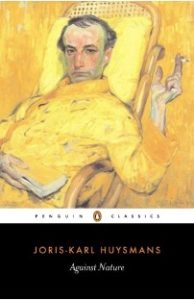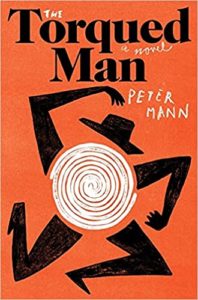Writers are great shirkers, as everyone suspects and all writers know. Our patron saint is Bartleby of Melville’s Bartleby the Scrivener, whose great refusal, “I would prefer not to,” is our battle cry against the world of workaday drudgery. For why work when you can write? Of course, it takes discipline and craft, those pieties writers are always prattling on about to hide their con. And most of us still have to earn a wage, warping our natural dispositions to fit the cruel parameters of the jobpath. But in our heart of hearts we’re hopelessly, defiantly workshy. After all, what could be further from being a productive member of society than sitting in a quiet room— or lying in an unmade bed— daydreaming onto the page?
Perhaps that’s why literature abounds in charming, if feckless, layabouts, and why these characters themselves often exhibit literary aspirations or squandered promise. Here are six of my favorites…
Ivan Goncharov, Oblomov:
In this 1859 Russian classic, featuring a tubby, lamb-gentle aristocrat who rarely leaves his recumbent state, Goncharov shows us the hard labor and anxiety of laziness. Ilya Oblomov is a young burn-out who couldn’t bear the bureaucratic rat race of St Petersburg, and has since fallen into a pathological indolence. Meanwhile, his busy friends pay him visits, his estate crumbles, and the world passes him by.
What precious little energy Oblomov has goes into berating his surly manservant and gorging on soups, pastries, and the ubiquitous glass of kvass. The edition put out by Yale University Press even includes a culinary glossary for the English reader who, like me, delights in the ins and outs of fictional gluttony.
If you have a tendency to dream up grand plans yet put them off for a snack, a nap, and a fit of wallowing melancholy, then Oblomov will cut you to your lazy bone. I suppose he’d be a revolting figure of slothful entitlement—and, indeed, that’s how many critics at the time read him, as symptomatic of the quietism of the Russian nobility—if he weren’t also such a sweetie pie. But Goncharov, like his fellow writer Turgenev, is a benevolent satirist, armed with as much love as mocking laughter for his hero. It’s through Oblomov’s eyes that we see his hurried, career-chasing compatriots as sleepwalkers who have lost touch with the humanity that he, for all his faults and irredeemably tragic condition, still clings to.
And if you want a modern update to Oblomov, as the obese gourmandizing heir of a Russian oligarch, check out Gary Shteyngart’s hilarious 2006 novel Absurdistan.
Joris-Karl Huysmans, Against Nature:
Huysmans’ 1884 novel is the black jewel of the fin-de-siècle Decadence movement—at once paragon and parody of the life artificial. No other writer I know of conjures the spiritual ennui of an entire civilization and makes us laugh so loud at the emptiness. Michel Houllebecq, whose 2015 novel Submission riffs on Huysmans, is perhaps a close second.
Des Esseintes, the degenerate scion of French nobility, retreats from the vulgar modern world to a chateau on the outskirts of Paris, where he hews to a strictly curated rest-cure of aesthetic dissipation. The story consists less of a plot than an inventory of his rarefied furnishings and distractions. He bedazzles a tortoise (spoiler: it doesn’t go well); he creates synesthetic oral symphonies with draughts of fine liqueurs from his ‘mouth organ’; he paws at his bespoke copies of late Roman verse and grows hothouse flowers that resemble venereal diseases, all while recalling his own past debauches. He even, in a coup of perversity, reverses the natural order of digestion and takes his food through an enema. If you suffer from any of the numerous maladies of existential dyspepsia, this book is for you.
Though he desperately wants to believe in his uniqueness, Des Esseintes is, like so many of us, a sick man—sick of society, sick of himself, and sick to death of nature, that tired muse, which offers him no hope of transcendence. Like a monk crossed with a morbid 19th-century hipster, he is an ascetic aesthete, turning his back on life and trying to wring meaning from artifice. Better call the doctor!
Samuel Beckett, Murphy:
Beckett’s trademark bleakness and bone dry humor are in full effect in this 1938 novel, his first, with playful convolutions of syntax and high-low diction that make every sentence a strange delight.
Murphy, a down-at-heel philosopher and “chronic emeritus,” is trying to quiet his body and free his mind from disturbance. What he likes best is to strip naked and bind himself to a teak rocking chair, then sway into an amniotic tranquility that he hasn’t known since “the vagitus.” But the problem is he’s gotten engaged to a kindly prostitute, Celia, who, despite his protests that it will be the end of him, demands he get a job.
While Murphy eventually finds work at the local insane asylum, where the mental patients embrace him as one of their own, Celia comes to appreciate the numbing joys of the rocking chair, “when no effort of thought could prevail against the sensation of being imbedded in a jelly of light.” After this delicious experience of nothingness, “she could not go where livings were being made without feeling that they were being made away.” That line is indicative of the novel: so often cerebral and wittily perverse, every now and then it whips out a phrase that flays you.
Flann O’Brien, At Swim-Two-Birds: 
The one-two punch of Beckett and O’Brien proves that nobody does charming dossers like the Irish modernists— or, as Father Dolan, the schoolmaster of young Stephen Daedalus, calls his pupils, “lazy, idle schemers.” In At Swim-Two-Birds (1939), Flann O’Brien, the penname of Dublin’s most brilliant barfly Brian O’Nolan, serves up an off-kilter classic, written in a fragmentary style filled with metafictional hijinks and prose so nimble it leaps.
Our unnamed narrator is a university student who lives with his blowhard of an uncle in Dublin and who, when not drinking large quantities of porter, spends an inordinate amount of time in bed laboring at his “spare-time literary activities.” He is writing a story about a similarly lazy writer named Dermot Trellis, who not only populates his fictions with cliched melodrama and stock characters from Celtic myth—like the legendary Finn McCool—but, in order to keep a firm grip on them, forces them to live under his roof. Only, his characters soon slip him a mickey and revolt against their tyrannical author, leaving them free to engage in some of the most deliciously inane conversations ever set in ink.
O’Brien is a dead-to-rights mimic, and he summons the heavily Latinate prose of early Beckett just as well as he does the mock-heroic voice of Irish epic and voluble disputations of barroom scholars.
John Kennedy Toole, A Confederacy of Dunces:
One of the few works I first read in my early teens and still adore, Toole’s 1980 novel stands or falls with its protagonist Ignatius Reilly—a truculent misanthrope with bowel trouble, living with his mother in New Orleans and fighting a one-man crusade to restore the world to a proper balance of “theology and geometry.”
Ignatius is content to stay in the cozy warmth of his childhood bed, reading Boethius, masturbating into his rubber glove, and writing screeds against modernity; that is until his mother wrecks the family car and he, like Murphy, has no choice but to risk life and limb and get a job. What follows is a picaresque romp of failed employments, from organizing an uprising at a pants factory to eating through his supply as a hotdog vendor. He goes to the movies and screams at the film stars (“Degenerates!”); he attends amateur art openings and decries the paintings (“Abortions!”); wherever he goes, he is a breath of fresh indignation, armed with hair-trigger invective.
Ignatius is by all accounts a right-wing authoritarian crank, but in the days before Trump and the internet he appears far more endearingly quixotic and lovably buffoonish than whoever his more loathsome and decidedly less funny 4chan counterpart would be today (an obese Jordan Peterson? a slovenly Ben Shapiro?). I shudder even to venture a comparison.
Otessa Moshfegh, My Year of Rest and Relaxation:
This darkly comic novel from 2018 pushes the trope of the workshy anti-hero to its logical extreme. It is the Against Nature for the most recent fin-de-siècle and dawn of our current glutted and hollowed-out century.
Our nameless female narrator and protagonist, sleek and pretty in appearance yet every bit as misanthropic as Ignatius and disaffected as Des Esseintes, is simply tired of being. An emptiness gnaws at her, one that all the trappings of New York living in the year 2000 are unable to fill: “I needed a way out of this—the bathroom, the pills, the sleeplessness, the failed stupid life.” But she doesn’t want to kill herself; she just wants a break, a full-blown retreat from consciousness. She’s moved beyond Des Esseintes’ naïve attempt to fill the void with manufactured pleasures and rarefied stimulants. And while Murphy longs to become pure mind, Moshfegh’s hero longs for the redemptive powers of nothingness—obliteration as a form of radical therapy. Instead of rocking, she finds her escape hatch through a gonzo psychiatrist and a regimen of high-powered pharmaceuticals.
Moshfegh’s novel is perhaps the darkest one of the bunch, yet written in such lean, energetic prose you can’t help but rush with our narrator away from waking life into the sweet abyss of chemically-induced sleep.
Perfect for a world where hibernation looks increasingly like our best option.

***
Peter Mann is the author of the debut novel The Torqued Man, now out from HarperCollins, about the double-life of an Irish spy in Nazi Berlin. While it seems Frank Pike made a deal with the devil and is now, as far as his German handler can tell, idling away his days as a shiftless drunk in the Reich, the truth is something altogether different…
Espionage master Alan Furst has dubbed the book “a damn good read” and NYT bestselling author Jess Walter calls it “a brilliant, surprising novel, Don Quixote by way of le Carré.”
A past recipient of the Whiting Fellowship, Peter teaches history and literature at Stanford and the University of San Francisco. He also draws cartoons. Visit petermannbooks.com for more.
